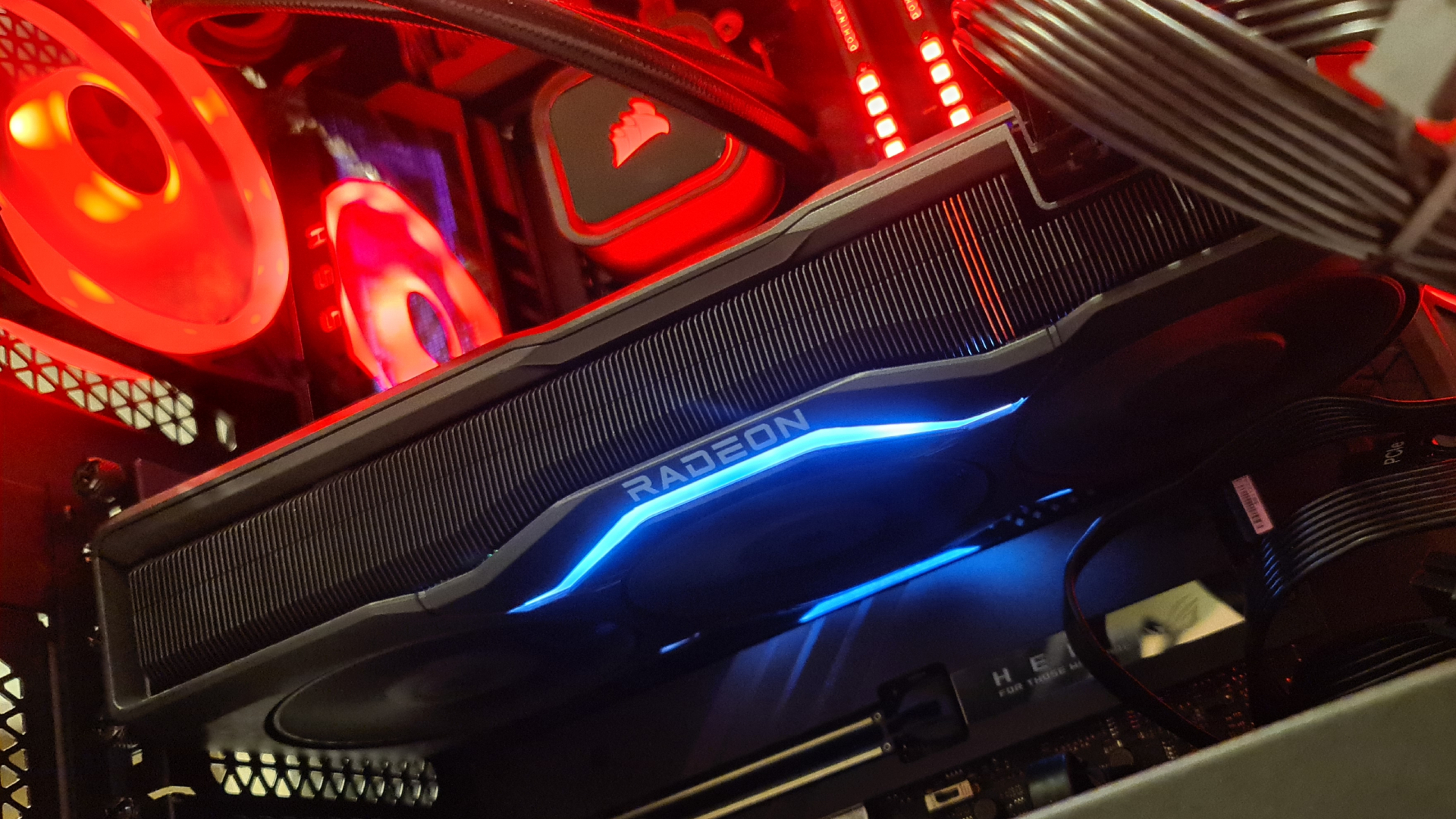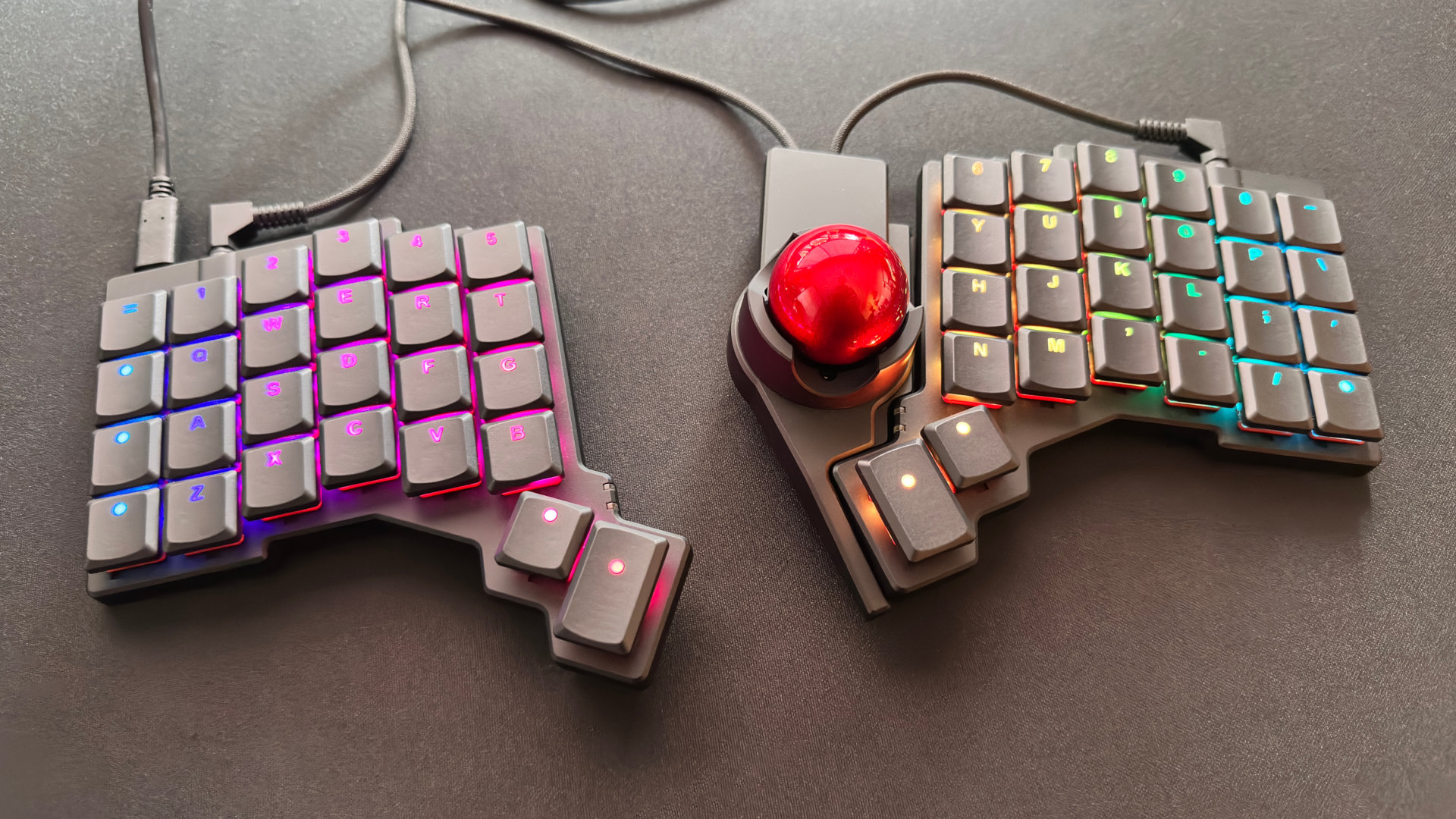
With upcoming Nvidia GeForce RTX 50-series and AMD Radeon RX 8000-series graphics cards looming on the horizon, it's easy to forget about the graphics software that will work alongside them, such as frame generation. Well, if we needed a reminder, AMD's latest Adrenalin driver release should help.
AMD's just announced Adrenalin 24.9.1, which claims to feature changes that can help "boost gaming performance by 2.5x". This is primarily thanks to the introduction second generation of AMD's Fluid Motion Frames, AFMF 2, which has now been officially released with this latest driver.
AFMF 2 was previously in beta, and the first generation of the tech has been with us since January. Last month we saw an AMD blog fail hint at an upcoming AFMF 2 release, which has now come to pass.
AFMF is a driver-level frame gen technology that you can toggle on or off in the Adrenalin software, giving you some of the benefit of FSR or DLSS but without any game-specific optimisations. This means no per-game implementations required, but also no per-game performance and quality enhancing optimisations.
The second generation of FMF, AMD says, "adds new optimizations and tunable settings for a better frame generation experience, including AI-optimized enhancements for improved quality, lower latency, and better performance on integrated graphics". AFMF now also works alongside Radeon Chill, borderless full screen mode with 7000-series GPUs, and Vulkan and OpenGL games.
AMD's charts show "on average 2.5x higher frame rates in selected games" using AFMF 2. However, this shouldn't be overstated because the results are from games run using HYPR-RX and FSR 2, not just AFMF 2.
This, of course, will be a standard use case, because AFMF is for those looking to generate frames when FSR 3 isn't available, in which case it's likely you'll be using other optimisations such as FSR 2 (which doesn't have frame gen) and HYPR-RX (which optimises game settings for you).
Keep up to date with the most important stories and the best deals, as picked by the PC Gamer team.

Best CPU for gaming: The top chips from Intel and AMD.
Best gaming motherboard: The right boards.
Best graphics card: Your perfect pixel-pusher awaits.
Best SSD for gaming: Get into the game ahead of the rest.
But, standard use case or not, we can't attribute anywhere close to the majority of these "2.5x gains" to AFMF 2. In our Nick's testing—admittedly of an earlier build of the tech—he found AFMF 2 to offer a slight frame rate improvement over first-gen AFMF, among other non-frame rate benefits such as to latency and fast-motion handling.
So, in other words, don't expect AFMF 2 to be a complete game-changer. But it'll be nice to have, for sure, for those games that don't offer FSR 3 support—who's gunna complain about free frames? And given most handheld gaming PCs pack an AMD Radeon GPU, there should be quite a market for it.
Radeon 7000-series owners can enable it by enabling the HYPR-RX profile in Adrenalin, and 6000-series owners can enable it in Graphics Options in Adrenalin.
While AFMF 2 is the main change of note with the latest AMD driver, there are additions, too, such as Geometric Downscaling. AMD explains, "When videos are being played in a window that is smaller than the native resolution, Geometric Downscaling helps reduce visual artifacts and aliasing, allowing for smoother video quality."
You can download AMD Adrenalin 24.9.1 here.

Jacob got his hands on a gaming PC for the first time when he was about 12 years old. He swiftly realised the local PC repair store had ripped him off with his build and vowed never to let another soul build his rig again. With this vow, Jacob the hardware junkie was born. Since then, Jacob's led a double-life as part-hardware geek, part-philosophy nerd, first working as a Hardware Writer for PCGamesN in 2020, then working towards a PhD in Philosophy for a few years while freelancing on the side for sites such as TechRadar, Pocket-lint, and yours truly, PC Gamer. Eventually, he gave up the ruthless mercenary life to join the world's #1 PC Gaming site full-time. It's definitely not an ego thing, he assures us.

